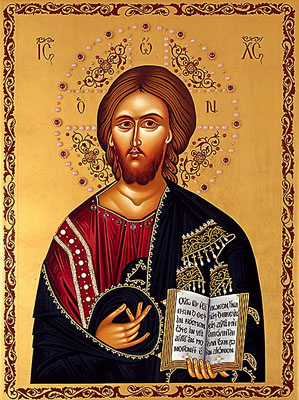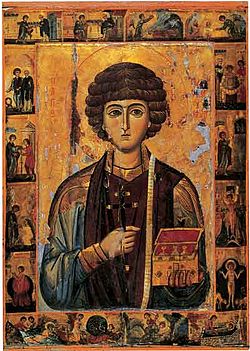Wednesday of week 17 in Ordinary Time  St. Mary's Assumption and St. Pantaleon Cathedral, Ravello, Italy Readings at MassLiturgical Colour: Green. Year: C(II).
They will not overcome you, because I am with you‘Woe is me, my mother, for you have borne me to be a man of strife and of dissension for all the land. I neither lend nor borrow, yet all of them curse me. ‘When your words came, I devoured them: your word was my delight and the joy of my heart; for I was called by your name, Lord, God of Hosts. I never took pleasure in sitting in scoffers’ company; with your hand on me I held myself aloof, since you had filled me with indignation. Why is my suffering continual, my wound incurable, refusing to be healed? Do you mean to be for me a deceptive stream with inconstant waters?’ To which the Lord replied, ‘If you come back, I will take you back into my service; and if you utter noble, not despicable, thoughts, you shall be as my own mouth. They will come back to you, but you must not go back to them. I will make you a bronze wall fortified against this people. They will fight against you but they will not overcome you, because I am with you to save you and to deliver you – it is the Lord who speaks. I mean to deliver you from the hands of the wicked and redeem you from the clutches of the violent.’
O God, you have been a refuge in the day of my distress. Rescue me, God, from my foes; protect me from those who attack me. O rescue me from those who do evil and save me from blood-thirsty men. O God, you have been a refuge in the day of my distress. See, they lie in wait for my life; powerful men band together against me. For no offence, no sin of mine, Lord, for no guilt of mine they rush to take their stand. O God, you have been a refuge in the day of my distress. O my Strength, it is you to whom I turn, for you, O God, are my stronghold, the God who shows me love. O God, you have been a refuge in the day of my distress. As for me, I will sing of your strength and each morning acclaim your love for you have been my stronghold, a refuge in the day of my distress. O God, you have been a refuge in the day of my distress. O my Strength, it is you to whom I turn, for you, O God, are my stronghold, the God who shows me love. O God, you have been a refuge in the day of my distress.
Alleluia, alleluia! Your word is a lamp for my steps and a light for my path. Alleluia!
Alleluia, alleluia! I call you friends, says the Lord, because I have made known to you everything I have learnt from my Father. Alleluia!
He sells everything he owns and buys the fieldJesus said to the crowds: ‘The kingdom of heaven is like treasure hidden in a field which someone has found; he hides it again, goes off happy, sells everything he owns and buys the field. ‘Again, the kingdom of heaven is like a merchant looking for fine pearls; when he finds one of great value he goes and sells everything he owns and buys it.’ The readings on this page are from the Jerusalem Bible, which is used at Mass in most of the English-speaking world. The New American Bible readings, which are used at Mass in the United States, are available in the Universalis apps, programs and downloads. |



